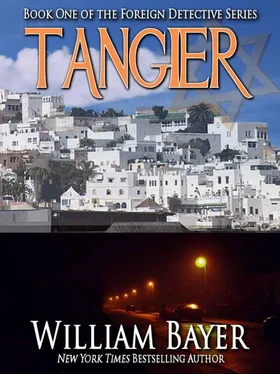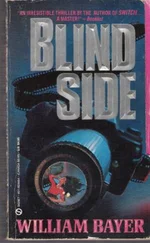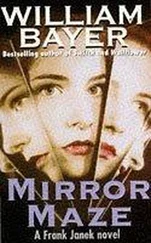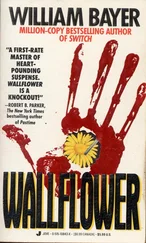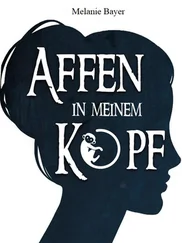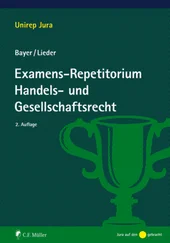William Bayer - Tangier
Здесь есть возможность читать онлайн «William Bayer - Tangier» весь текст электронной книги совершенно бесплатно (целиком полную версию без сокращений). В некоторых случаях можно слушать аудио, скачать через торрент в формате fb2 и присутствует краткое содержание. Жанр: Криминальный детектив, на английском языке. Описание произведения, (предисловие) а так же отзывы посетителей доступны на портале библиотеки ЛибКат.
- Название:Tangier
- Автор:
- Жанр:
- Год:неизвестен
- ISBN:нет данных
- Рейтинг книги:5 / 5. Голосов: 1
-
Избранное:Добавить в избранное
- Отзывы:
-
Ваша оценка:
- 100
- 1
- 2
- 3
- 4
- 5
Tangier: краткое содержание, описание и аннотация
Предлагаем к чтению аннотацию, описание, краткое содержание или предисловие (зависит от того, что написал сам автор книги «Tangier»). Если вы не нашли необходимую информацию о книге — напишите в комментариях, мы постараемся отыскать её.
Tangier — читать онлайн бесплатно полную книгу (весь текст) целиком
Ниже представлен текст книги, разбитый по страницам. Система сохранения места последней прочитанной страницы, позволяет с удобством читать онлайн бесплатно книгу «Tangier», без необходимости каждый раз заново искать на чём Вы остановились. Поставьте закладку, и сможете в любой момент перейти на страницу, на которой закончили чтение.
Интервал:
Закладка:
"Magnificent, Hamid. But why have we waited so long?"
"I don't know. Lethargy, I suppose. Now it pains me the way Tangier's turning into a dump. Every June the beach becomes a meat rack. We must change it back into a place to take a swim."
He spent the morning with the state prosecutor discussing pending cases, plowing through dossiers. When, finally, he returned to his office, he found a message from Farid.
The bazaar was closed when he arrived, so he parked and walked up the Boulevard looking for his brother in each of the cafes. He found him at Claridge reading a newspaper, eating lunch.
"Ah, here you are." He slid into a chair.
"I knew you'd find me, Hamid. How are you today?"
"Terrible. I've got too many cases. It's summer, and the town's gone mad."
He ordered swordfish. After the waiter left Farid put his newspaper down.
"I found the book you wanted."
"Good. Thanks."
"At the French library. They have a shelf on Indochina there. This one, about colonial Hanoi, was covered by half an inch of dust."
"Did you look at it?"
"Yes. After I cleaned it up. It's interesting, Hamid. I was quite surprised. Hanoi was something like Tangier."
"That is interesting. Tell me more."
"Well, it was an odd sort of place, like a provincial French town, but cosmopolitan too. Lots of nationalities like here-Indians, Chinese, Russians, French. And of course the natives, our equivalents-the Vietnamese, the Tonkinois."
Hamid smiled.
"A foreign quarter. Big villas. French doctors, lawyers, churches, lycees. Even a tennis club in the middle of town, and then antique shops like mine, and little shops selling native wares. Buddhist temples too-the equivalent of our mosques, at least as far as the French could see. It's very interesting. I left it at the shop. I'll give it to you after lunch." He paused. "Tell me, Hamid, why are you interested in such a book?"
"Kalinka, of course."
"I guessed that."
"I want to know everything about her. And about all the places that she's lived."
"She's telling you things now?"
Hamid nodded. "Last night, however, we hit a snag. She went to see the Russian. He told her not to tell me any more. He's afraid I'm after him, building up a case to kick him out. She knows that isn't true, but now she's hesitant to go on."
"Why's he afraid?"
"That's what I want to know. It's very curious, Farid-it seems our little Peter was once something of a spy."
His swordfish came and as he ate it he began to describe to Farid the Russian community of Hanoi. And then the childhood of Peter Zvegintzov, the only son of a middle-class Russian couple, brought up in a little room behind their shop.
"There were all these children of different nationalities," he said, "so Peter learned lots of languages early on. There was also another Russian boy approximately the same age named Stephen Zhukovsky. He and Peter became best friends.
"As I reconstruct things, they grew up together in the 1920s and 1930s just about the time the first Communists began to surface in Hanoi. There were Russians, Soviet agents, sent down to set up networks in Indochina. Possibly it was one of these who recruited Peter and Stephen at the Hanoi lycee. Anyway, Kalinka says Peter always was a Communist, not, probably, out of deep conviction but to be different, to stand out. It's easy to imagine him thinking of his recruitment as a game. Secret meetings, a cell, fun with his best friend. But then, in 1940, with the fall of France, the Indochinese administration sided with Vichy, and the Japanese arrived.
"The Vietnamese Communists, directed from China by Ho Chi Minh, decided to side with the Allies. Peter and Stephen received their orders-to link up with the Viet Minh. Now here the politics become a little murky, but I don't think it's important to follow all the twists and turns. Just think of Peter, eighteen then, already stout, wearing spectacles, full of energy, eager, and alive, embarking with his friend Stephen Zhukovsky upon a dangerous double life.
"They were drafted, both of them, into the Vichy army, where they snooped around, collected information, then passed it along to the Viet Minh. It was dangerous work, of course, but to them still something of a game. It was a while before they realized how serious it was."
Hamid finished eating, paid his and Farid's bills. Then they walked out onto the Boulevard to Farid's shop to retrieve the book. After that they turned down Rue Marco Polo, crossed the tracks that ran parallel to Avenue d'Espagne, and walked onto the beach. Hamid talked the whole way, stopping every so often to make a point. Farid listened, fascinated, head bowed, eyes always on the sand.
"Here," said Hamid, "a Vietnamese lady enters the scene, a great beauty, the contact agent for Peter and Stephen's cell. They both fall in love with her-madly in love. She is so attractive, even a seductress, and like Kalinka, I imagine, mysterious and subtle, the sort of woman who can break your heart. Her name was Pham Thi Nha, but the boys both called her Marguerite. Both of them courted her. They could speak to each other of nothing else. They were best friends and rivals too. A friendly triangle was formed.
"Stephen Zhukovsky was the one, finally, chosen to be her lover. Peter, accepting her decision, gracefully stepped aside. Meanwhile the spying went on. The boys collected intelligence, carried messages, even helped divert a shipment of Japanese arms to guerrillas waiting in the swamps. Lots of adventures, a few close calls, bonds of fraternity between them, and all that. Peter even got hold of a photo of De Gaulle and put it with the one of Stalin he kept hidden in his boot. He still has it, Kalinka says-somewhere among his papers in the back room of La Colombe. Anyway, in 1943 Marguerite and Stephen Zhukovsky had a child. They named her Pham Thi Phoung. Peter, her godfather, suggested 'Kalinka' as her European name."
Hamid stopped. Farid glanced up.
"Go on," he said. "Go on. Go on!"
"Well, here I must rely upon research-Kalinka has no sense of politics, of course. Toward the end of the war Indochina went into turmoil. It had been run by the Vichy French, but in March of 1945 the Japanese turned suddenly against them. Perhaps because they knew they were going to lose the war, maybe because they hated people who were white-whatever the reason, they disbanded the Vichy army, and then their police started making mass arrests. It was terrible. Every Frenchman in the Langson garrison was beheaded with a ritual sword. Some of the French units made a dash for the Chinese frontier, hoping to find sanctuary with Chiang Kai-shek. Stephen and Peter managed to escape, leaving Marguerite and the baby behind. They hid out in the jungle for a while, then tried to come back. They were caught on the outskirts of Hanoi, arrested by the Japanese.
"They were tortured, both of them, hideously tortured in the summer of 1945. Peter was wounded in such a way that he would be impotent the remainder of his life. Stephen Zhukovsky was not so fortunate. He was tortured to death.
"On August 6 the Americans bombed Hiroshima. On August 16 the Japanese released all their prisoners in the colony. On August 17 Peter Zvegintzov, twenty-three years old, ruined in his manhood, wandered the rain-swept streets of Hanoi. His parents had been killed. Their shop was boarded up. Marguerite and the child had disappeared. Stephen Zhukovsky was dead. Dazed and afraid, he watched mobs of exultant Vietnamese rally before the Municipal Theater. From a staff on its main balcony the Communist party flag was finally raised.
"That's all I have so far, but you see the sort of background that's involved. It'll all come out, little by little. She'll tell it to me if Peter hasn't persuaded her to stop. He's hiding something, you see-perhaps something Kalinka doesn't know herself."
Читать дальшеИнтервал:
Закладка:
Похожие книги на «Tangier»
Представляем Вашему вниманию похожие книги на «Tangier» списком для выбора. Мы отобрали схожую по названию и смыслу литературу в надежде предоставить читателям больше вариантов отыскать новые, интересные, ещё непрочитанные произведения.
Обсуждение, отзывы о книге «Tangier» и просто собственные мнения читателей. Оставьте ваши комментарии, напишите, что Вы думаете о произведении, его смысле или главных героях. Укажите что конкретно понравилось, а что нет, и почему Вы так считаете.
